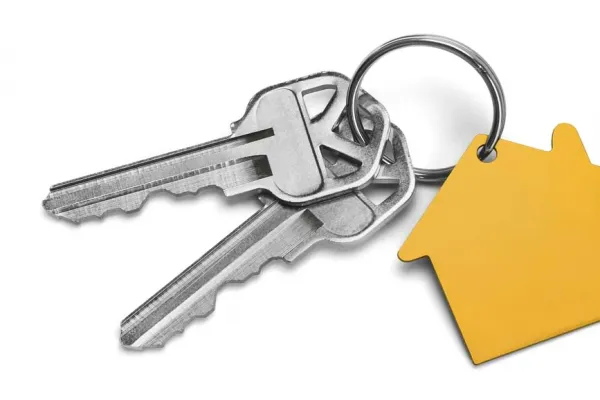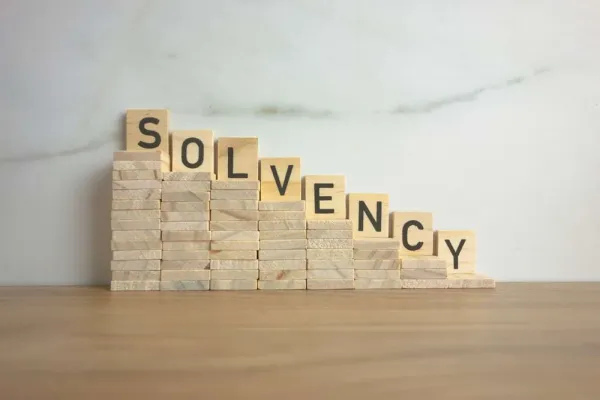When selling a house in the UK, the owner may need to declare solvency to their mortgage lender and/or the buyer.
This declaration states that the owner can cover their debts and liabilities. This gives them knowledge of their financial standing.
This blog explains what a declaration of solvency is and how to make one. It also looks at whether you need a conveyancer and the consequences of false statements.
Keep reading for everything you need to know.
What is a declaration of solvency when selling a house?
A declaration of solvency is a written statement by a homeowner. It confirms that they have enough assets to cover their debts and liabilities.
It is an important issue to declare when selling a house.
You need it when the owner is “gifting” their share of the property to another individual for zero money. An example is transferring ownership to a family member.
The declaration confirms the owner is solvent – meaning their assets outweigh their liabilities.
Assets include:
- Money
- Investments
- Cars
- Valuables
- Property.
Liabilities are debts owed, such as:
- Mortgages
- Loans
- Credit cards
- Taxes.
The declaration reassures everyone that gifted transactions won’t stop you from paying off debts.
How to make a declaration of solvency
You should follow a few key steps to declare solvency when selling or gifting a house in the UK.
You need to calculate your total assets. Add up the current market value of all assets owned, including:
- Money in bank accounts
- Investments like stocks and shares
- Vehicles
- Valuables like jewellery
- Other properties.
Second, you need to calculate your total liabilities. Add the amount owed on all debts and liabilities.
This includes outstanding mortgage balances, credit card balances and personal loans. It also involves car finance agreements, tax owed, and other debts.
From here, you subtract total liabilities from total assets. This allows you to determine if you have a positive balance confirming solvency.
You then present figures using a solvency declaration template. You will need to state:
- Name
- Property address
- Date
- Asset/liability amounts
- Solvency confirmation
Sign the declaration before an independent witness like a solicitor. This professional will counter-sign to verify your signature.
The signed declaration can then go to lenders and buyers to prove solvency. Keep a copy for your records, too.
Can I make a declaration of solvency without a conveyancer?
You do not need a conveyancing solicitor to declare solvency when selling or gifting a house. The declaration requires your signature witnessed by an independent party.
Any solicitor can witness your signature on the declaration. You can also sign before other professionals, like an accountant or notary public.
Whoever witnesses verifies your signature – they don’t check whether you are solvent.
You should ask a conveyancer to review the declaration before signing. This ensures it meets lender and buyer requirements.
They can also verify that your solvency calculations are accurate. Property value and debts owed calculate this.
A conveyancer’s expertise can give reassurance and protection.
What happens if I make a false declaration of solvency?
Making a false declaration of solvency when gifting property is fraud.
You can face legal actions if you say you are solvent when you are insolvent. The same applies if you exaggerate assets/understate debts.
You must be cautious and accurate throughout the process.
Bankruptcy trustees can use gifted property transaction to sell the asset.
This pay off creditors. Likewise, you could face mortgage fraud. This can result in large fines or imprisonment.
Your credit rating will fall, so getting future loans and credit will be difficult. If the new owner defaults, you will be liable for debt owed to the lender on the gifted property.
Any other assets can settle debts related to the false declaration. You should get professional guidance if unsure.
This investment in expert advice gives protection. This gives you confidence in the accuracy of your declaration.
Why is a declaration of solvency required?
There are two reasons for a declaration when selling or gifting property.
If the lender wants assurance that the seller’s mortgage debt will still be repaid. If the seller is insolvent, their debts exceed their assets, and they may default on the mortgage.
The declaration shows that the seller has enough assets to repay debts.
If the seller goes bankrupt, trustees can reverse gifted property transfers. This can repay creditors. This would mean the new owner loses rights to the house.
The declaration shows the gift won’t reverse due to the seller’s insolvency.
The declaration protects the lender’s and buyer’s interests in gifted property transactions.
It proves the seller can afford to give all or some of the property away without becoming insolvent. This avoids legal issues that could overturn the gift in the future.
What happens if the property value has decreased during the time I’ve owned it?
Suppose the property sold or gifted has decreased in market value. In that case, this capital loss will show in your asset calculation.
The asset total must show the property’s current value. It should not show the higher sale price or previous valuation.
The lower market value will reduce your assets, but this does not make you insolvent.
If your assets still exceed the liabilities owed, you can confirm solvency.
This applies even if the property value has dropped. Any conveyancer reviewing your figures will account for a lower property value.
This will decide if you have a positive balance of assets over debts.
The declaration must reflect up-to-date asset and liability amounts. This includes capital losses on property or other assets.
















